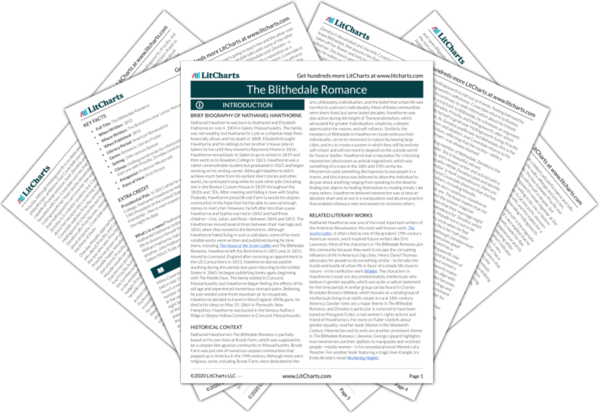Priscilla has a sixth sense and she picks up on the shift in energy between Hollingsworth and Zenobia when she presses his hand to her body. Priscilla senses this and it makes her sad, revealing her own growing love for Hollingsworth. However, Priscilla also loves Zenobia, so she feels torn between the two. She must either resign herself to losing Hollingsworth or risk losing Zenobia if she pursues Hollingsworth. Either way, Priscilla is obviously keeping her feelings a secret, although Coverdale picks up on them. Coverdale’s petty attempt to hurt Priscilla by pointing out how happy Hollingsworth and Zenobia look is also meant to encourage Priscilla to give Hollingsworth up. In other words, Coverdale is trying to fulfill his role as Priscilla’s savior by trying to convince her that giving her heart to Hollingsworth is useless.
